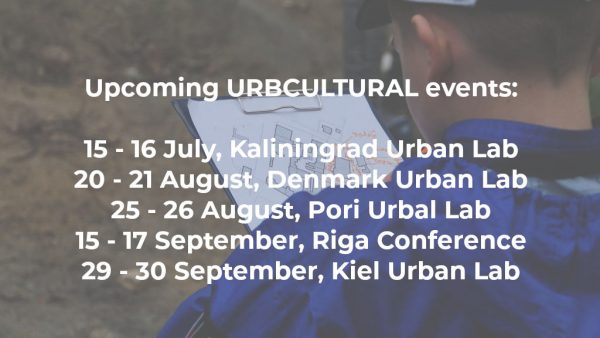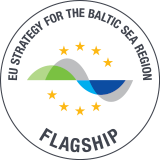Until September, 4 urban labs and 1 final conference will take place during the Urb Cultural Project. With various formats, online, offline and hybrid, the events will continue the dialogue between artists, residents and decision makers to make our cities better places to live!

What are Urban Labs for?
Urban Labs are events used to fostering the development and implementation of innovation, experimentation and knowledge in urban, real-life settings while emphasizing the important role of citizen participation and co-creation.
Furthermore, the aim of the Urban Labs is to obtain experience and to co-develop Cultural Planning models addressing different societal challenges in the Baltic Sea region.
Each Urban Lab will focus on different societal challenges in the Baltic Sea region, as well as cultural planning methods relevant to these challenges. Therefore, topics will include: Urban diversity / cohesion, sustainable communities, children and youth, as well as cultural and green tourism.
What are conferences for?
Conferences bring Cultural Planning practitioners together with relevant policymakers and stakeholders: regional and city planners, culture departments, funders, NGOs, business-organisations, and media. Conferences combine keynotes and lecture-style presentations with more hands-on interactive formats (workshops, round-table discussions, or site visits).
Each event aims for participation of 100-150 persons, including both the partner regions/countries and those outside the current partnership. Conferences are also open for professional practitioners in other fields, such as urbanists, architects, artists, researchers, etc., and will partner with multilateral organisations and regional initiatives on attracting participants, such as United BalticCities, BSSSC, NordicUrban Lab, Co-Urbanism etc.
We have done six Urban Labs and two conferences so far:
- Pori (2019)
- Copenhagen (2019)
- Kiel (2020)
- Vilnius (2020)
- Riga (2020)
- Visaginas (2021)
- Kiel conference (2019)
- Gdansk conference (2020)
5 UPCOMING EVENTS (in a chronological order):
-
15 – 16.07.2021 URBAN LAB ON CULTURAL ACTORS AS MEDIATORS – KALININGRAD
The Lab will consist of 2 parts. Day 1 will focus on rethinking local (Kaliningrad region) experience in the light of cultural planning methodologies, discussing potentials for promoting the approach in the Kaliningrad region, building links between local initiatives, partners from the Northwest Russia and UrbCulturalPlanning Hubs of Excellence.
Day 2 will introduce local participants and UrbCulturalPlanning partners to cultural planning practices from the Northwest Russia and implementation of the Demonstrator project in Kaliningrad. Besides, the role of art institutions (museums) as platforms for cultural planning will be discussed.
- 20 – 21.08.2021 URBAN LAB ON CHILDREN AND YOUTH – GULDBORGSUND/COPENHAGEN
The lab will be focusing on inclusion of children/young people in social change, as well as in community change, experiences, methods. The lab is planned as a hybrid event taking place online and offline.
- 25 – 26.08.2021 URBAN LAB ON GREENING AND BLUEING CITIES – PORI
The aim of the lab is to work with the environmental issues we are facing – a strong aspect which will be more present in the future dialog about urban strategies. The workshop is planned to happen offline with emphasis on visiting different sites.
- 15 – 17.09.2021 CONFERENCE – RIGA
How can cultural planning translate into innovative strategies for policymaking? The conference will review, understand and challenge the results of the various UrbCultural Planning project activities. Activities are planned in hybrid for now.
- 29 – 30.09.2021 URBAN LAB ON ANCHORING, DIFFUSION AND LEARNING STRATEGIES – KIEL, SCHLESWIG-HOLSTEIN
The Lab will be working with sustainability (social, urban, resources) as the key to securing a long term “legacy” and integrate the project in to strategic programs. It will examine strategies and policies of how to ensure dissemination and diffusion in learning of cultural planning, and will look at various models from the Demonstrators.
More information will be announced soon, and any changes will be published on our social media channels as well as in partners’ channels.








